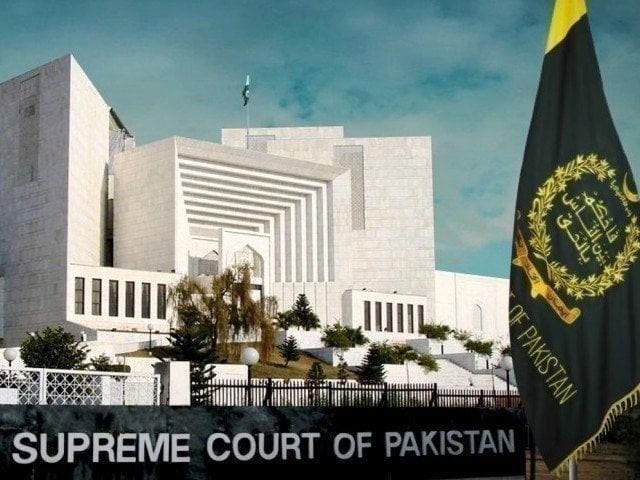SC not on trial in military courts case
CB asserts rulings will be based strictly on Constitution

The Supreme Court's seven-member constitutional bench has rejected the notion that the apex court itself was on trial, asserting that all matters would be assessed strictly through the lens of law and the Constitution.
The bench, led by Justice Aminuddin Khan, resumed hearings on the military courts case on Wednesday. Justice Aminuddin reaffirmed that the court was not under scrutiny in this case and would render its decision solely based on constitutional and legal principles.
During the proceedings on intra-court appeals against the trial of civilians under the Army Act, Advocate Aziz Bhandari, counsel for PTI founder, was scheduled to present arguments. However, Advocate Latif Khosa, representing Barrister Aitzaz Ahsan, took the podium and sought the court's permission to continue his arguments instead.
Justice Aminuddin Khan allowed him to proceed, stating that if the lawyers had reached a mutual understanding, the court had no objections.
The courtroom witnessed interactive exchanges between judges and counsels. Justice Jamal Mandokhail asked Khosa to begin with the legality of Section 2-D.
Khosa pointed out that the entire nation was closely watching the case, arguing that Section 2(D) was one of the reasons behind Pakistan's breakup in 1971. "The Hamoodur Rahman Commission Report clearly states that this law fuelled institutional hatred," he asserted.
As Khosa delved into judicial independence and legislative history, Justice Mandokhail interjected, questioning what steps Khosa had taken to repeal Section 2-D during his tenure, adding that Parliament was free to remove it even today.
"If you believe this law is flawed, Parliament is free to repeal it today," remarked Justice Mandokhail.
When Justice Mandokhail asked whether he had opposed the amendment at the time, Khosa responded that PTI had abstained from voting. "Your job was to oppose it. You should have played your role," retorted Justice Mandokhail before dismissing the matter as "too political".
Justice Musarrat Hilali observed the apparent contradiction in politicians' statements inside Parliament and in court. "You say one thing in Parliament and another here. Military courts were established much later; the reasons behind the fall of Dhaka were entirely different," she added.
She questioned Khosa on whether lawmakers had been coerced into supporting the 26th Amendment, asking how many resigned in protest. She further remarked that the arguments being made in court should instead be raised in Parliament. "You approve an amendment in Parliament and then ask the Supreme Court to undo it," she said.
Justice Aminuddin Khan also noted that negative propaganda against the country often stems from misleading reports, citing the Mukhtaran Mai case as an example.
During the proceedings, a sharp disagreement also emerged between senior lawyers Aitzaz Ahsan and Salman Akram Raja. Ahsan objected to Raja's differing stance on a part of Justice Muneeb Akhtar's ruling, asserting that he had given no such directive to his co-counsel.
Raja, however, stood by his argument, clarifying that his remarks had been made by another counsel, Arzam Junaid, the previous day.
Justice Naeem Akhtar Afghan cautioned against the influence of social media narratives, stating, "We don't let social media affect our rulings, and neither should you".



















COMMENTS
Comments are moderated and generally will be posted if they are on-topic and not abusive.
For more information, please see our Comments FAQ